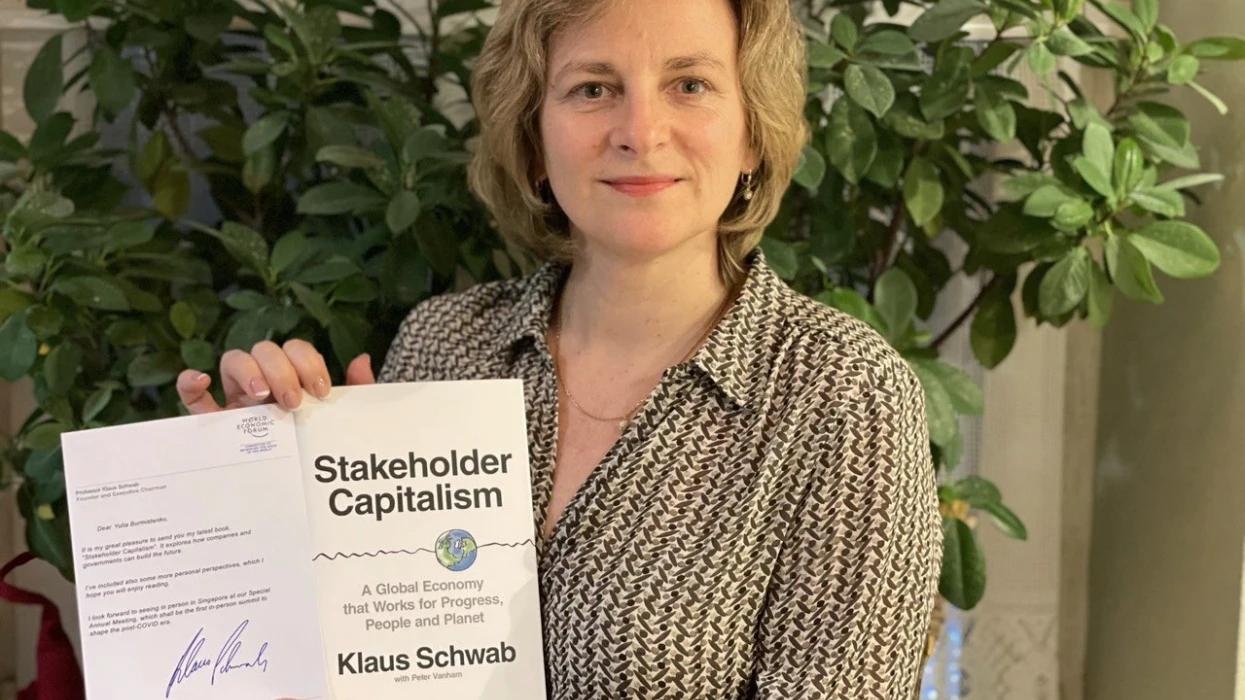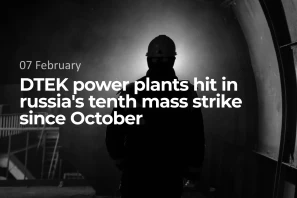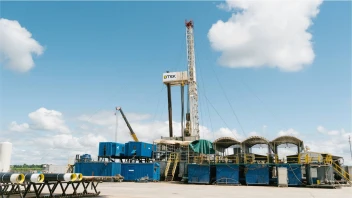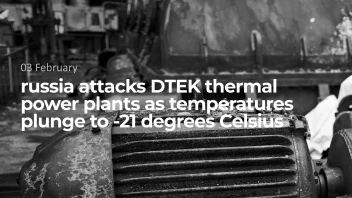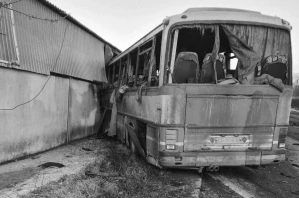Yuliia Burmistenko, Advisor to the DTEK CEO on international affairs, joined DTEK’s delegation to the World Economic Forum (WEF) for the first time. Here, she shares the most significant insights from this year’s panel discussions on the topics of the post-pandemic economic recovery, Great Reset, tackling climate change, responsible stakeholder capitalism, and gender parity.
Climate change and carbon neutrality
As Chancellor Merkel said, "we are vulnerable to climate change, and we have to deal with it". Clean transition requires tremendous efforts as we phase out fossil fuels such as coal, transition to hydrogen, develop e-mobility, and more. President Von der Leyen spoke about the Green Deal, which envisages the development of a sustainable EU economy. In particular, she emphasized plans to generate energy from renewable sources, to ensure the active use of hydrogen and the importance of a circular economy.
Implementing the Green Deal will not be an easy task for European countries, as they will require coordination, time and financing. DTEK is proud that exactly one year ago in Davos it initiated the discussion on the implementation of the Green Deal in Ukraine. We are happy to see that the EU’s green policies are now on the agenda in our country. The Green Deal is a unique opportunity for Ukraine to transform its post-Soviet economy and reach the level of other European countries. It is particularly important as the EU considers Ukraine as a potential leader in hydrogen energy. It’s vital not to miss this chance.
Building net-zero cities is crucial for tackling climate change. They cover only 2% of the Earth’s surface area but host 50% of the global population. Cities account for 75% of energy consumption and are responsible for 80% of global emissions.
The WEF has attributed great importance to this topic and has established the Net Zero Carbon Cities programme. Its partners recently published the ‘Net Zero Carbon Cities: An Integrated Approach’ report, which contains recommendations on making cities greener, healthier and more sustainable.
It is important to mention that the WEF does not endeavour to simply prepare analytics but rather make its suggestions actionable. WEF members, including DTEK, strive to be providers of knowledge and subsequently implement the WEF’s vision in day-to-day activities. Examples of the application of such ideas can be seen in the behaviour of large companies building or leasing offices with LEED certificates and the expanding electric vehicles fleet, which in Ukraine is being supported by new EV fast charging stations thanks to YASNO-mobility.
Accelerating the transition to clean energy
The Davos Agenda also served as a forum for a broad discussion on how different countries and regions are progressing in their decarbonisation ambitions and the conditions they have created to make their economies greener.
Kadri Simson, the European Commissioner for Energy, pointed out that the "green transition" needs political will (which the EU has), technological solutions and stable funding. Energy efficiency should be increased while fossil fuels should be abandoned. Commissioner Simson emphasised that the clean energy transition is the foundation of the EU’s economic recovery plan, and each national recovery plan should allocate at least 37% of funds to climate-related issues. However, public investments alone are not enough, private banks and foundations should also invest. The taxonomy – a system to identify investment priorities – is being launched to help and promote sustainable investments. The EU is also creating the appropriate regulatory framework as an important tool for green transition. As a result, renewable energy should reach at least 40% in the EU energy balance within 10 years.
The WEF in collaboration with the International Energy Agency and the World Bank announced the launch of a project working on a Special Report on Financing Energy Transition in Emerging and Developing Countries. DTEK plans to participate in this initiative within its partnership with the WEF.
International cooperation
World leaders highlighted the need for international cooperation as opposed to isolationism. Chancellor Merkel stated that the COVID-19 crisis has demonstrated how interdependent we are and that isolationism will not help to tackle our problems. It also has shown how vulnerable we are despite our technological advances.
As United Nations Secretary-General António Guterres mentioned, inclusive and sustainable recovery around the globe will depend on the availability and effectiveness of vaccines for all, immediate fiscal and monetary support in both developed and developing countries, and transformative longer-term stimulus measures. As long as COVID-19 is not under control everywhere, the cost of the global pandemic will continue to be as high as $1.2 trillion per year, according to research non-profit RAND Europe. Continued disruption to the world economy, through battered supply chains and weaker demand will continue to weigh on all nations.
Chancellor Merkel also stressed the threat that each country would prioritise internal developments and isolationism would grow as a result of the pandemic. Consequently, Germany does not aim to reduce spending on international cooperation despite the possibility of such developments becoming a reality.
This is an excellent message for us as last year saw the launch of expanded partnership between Ukraine and Germany. Such cooperation allows for the implementation of strategically important projects in restructuring the coal industry, ensuring a just transition in coal-producing regions, the development of renewable energy and hydrogen, and the uptake in the application of energy-efficient technologies across all economic sectors.
Stakeholder capitalism
According to Founder and Executive Chairman of the World Economic Forum Dr Klaus Schwab, we are moving from short-term shareholder profit maximization to a world that is characterized by stakeholder responsibility. The stakeholders in this case are clients, consumers, suppliers and employees. The COVID-19 crisis has shown that companies which commit to stakeholder capitalism perform much better than others because they invest in their long-term viability, a concept which will be measured by several generations.
In the last two years, the WEF, supported by over 140 participants, outlined its stakeholder capitalism metrics, a renovated set of universal indicators, including non-financial indicators related to information disclosure and focused on four pillars: people, planet, prosperity and governance. The pillars include metrics such as greenhouse gas emissions, pay equality and board diversity.
To summarise, the importance of carbon neutrality is growing, and it is one of the key factors influencing investment decisions. According to its updated ‘Strategy – 2030’ DTEK committed to reach carbon neutrality by 2040. We are among the first companies in Ukraine to adopt a comprehensive environmental, social and corporate governance (ESG) strategy, and the country’s leader in the implementation of such principles.
Gender parity
Much has been said of the need to plan for a more equitable society with the emergence from the pandemic. Three priorities should be identified for this. Firstly, providing the infrastructure needed for mothers to progress in the workplace. Secondly, continued efforts to overcome the gender pay gap. And thirdly, and perhaps most importantly, protecting women and challenging those who seek to use conditions created by the pandemic as a tool of control to hold women back.
I am a member of the Supervisory Board of the Women's Energy Club of Ukraine, the NGO promoting this agenda in our country. A recent study, titled "Women and men in the energy sector of Ukraine" supported by the Heinrich Böll Foundation, sought to identify the most pressing gender challenges in employment and avenues to ensure sustainable and socially fair development of the Ukrainian energy sector.
From a global perspective, the planet's survival requires both new thinking and fresh strategies. Our battle is between ‘business as usual’ and future-focussed innovation. It may be women and youths who possess the desired and much needed unconventional solutions



